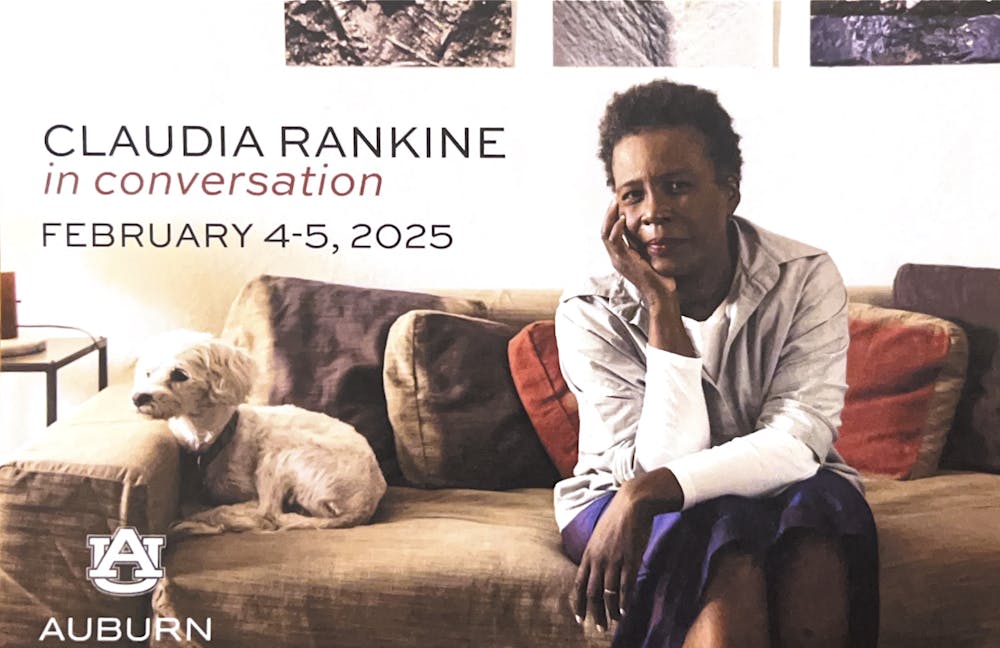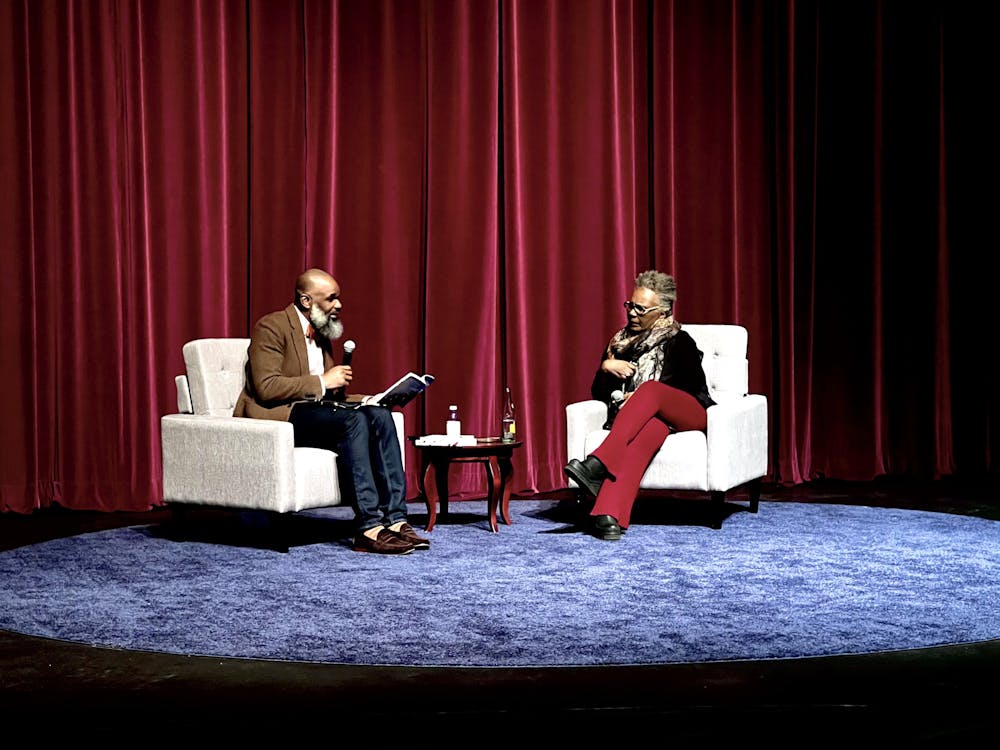From Tuesday, Feb. 4 to Wednesday, Feb. 5 decorated writer Claudia Rankine visited Auburn University to speak with students, faculty and the affiliated community. She spoke with Alabama Poet Laureate Ashley M. Jones, as well as Associate Professor Dr. Ernest L. Gibson III about being Black in America, the significance of her writings and the conversations she believes Americans ought to have.
Rankine has written three plays, five books of poetry and a collection of essays. She has received the Bobbit National Prize for Poetry, and she has fellowships from the Guggenheim Foundation, the MacArthur Foundation, United States Artists and the National Endowment of Arts.

Her writings focus on race, the Black experience, subjectivity, creativity and humanity.
The conversation on Tuesday in the Jule Collins Smith Museum auditorium focused on the visual elements in Rankine’s work, as well as her intentional fusion of lyric and language.
“I wanted the work to insist on seeing as part of the knowing,” Rankine said.
She articulated that the contemporary world is very visual, society is visual and culture is visual. Racism has everything to do with “the visual” as well.
Jones also introduced the idea of considering history like a gallery of art, with every person’s interpretations being different. In response to this, Rankine discussed her desire to deconstruct the notion of the “all-knowing lyric I” as the singular way of interpreting because she believes that words can mean many different things.
Her work intentionally keeps the text open and involves the reader in an active way. Witnessing and shared experience are important themes in Rankine’s works.
“No matter what and who we are, we have one thing in common: we have had to navigate life with those who disappointed us,” Rankine said.
Rankine articulated that this disappointment — in loved ones, in country and in systems — ought to drive people to care for one another; empathy and curiosity should provoke people to commit to these difficult conversations.
When Jones asked what Rankine wanted to leave the audience with, she thoughtfully responded, “Just because you supported or didn’t support this [new] administration, we can still support each other. Some people are going to be f----- over. Some are right now. [...] We need to be ready to help,” Rankine said.
Rankine emphasized the necessity to be creative and pursue the needs of fellow Americans instead of waiting to be asked to help. She pleaded with the audience to not let people go.
The Jule sold copies of Rankine’s books. She stayed for about an hour to sign and interact with people. Her conversations with people were genuine and personal, encouraging them to keep writing or to keep pushing for the truth to be seen.
In the conversation at Telfair Peet Theatre on Wednesday, Gibson questions focused on “Don’t Let Me Be Lonely” (2004), “Citizen: An American Lyric” (2014) and “Just Us: An American Conversation” (2020).
To begin, the Mosaic Theatre Company performed a few lines of Rankine’s poetry, and Rankine read an excerpt from her new book “Triage.” Her potent words gracefully filled the room. Then, she and Gibson took the stage.
Gibson started with the foundation of “Don’t Let Me Be Lonely” and asked Rankine about her mission to “decenter the poetic I.” Rankine responded by describing the inspiration she received from the Irish poet William Butler Yeats.
Rankine loved how Yeats could be “petty,” as well as passionate, political and poetic.
“This is it. You can do really everything,” Rankine said as she described the impact of Yeats’ work on hers.
Gibson structured the conversation by interacting with the first person in “Don’t Let Me Be Lonely,” the second person in “Citizen” and the third person in “Just Us.”
Gibson and Rankine also spoke of the disappointments, microaggressions and racism Black people continue to face in this country. They agreed on the importance to witness these experiences and engage in the closeness her writing brings.
“This is the bruise we carry. In that sense I am not waiting for White people to change,” Rankine said.
Rankine said that sharing an experience doesn’t erase it, but it does make it less powerful. She called Americans to stop talking past each other but instead engage in important conversations.
“The bill is coming for all we have done,” Rankine said, her voice passionately rising and questioning how people could let other people die or suffer or lose things they desperately need.
“What does that say about one human’s ability to care for another? In a sense we're back at ‘Don’t Let Me Be Lonely,’” Rankine said.
The audience was silent at the poignancy of the question.
Gibson then broke the silence saying, “Don’t be afraid to sit or stand in that question.”
The audience then filed out of the auditorium to purchase copies of her books from Auburn Oil Co. Booksellers and socialize.
The free events were sponsored by the Caroline Marshall Draughon Center for the Arts and Humanities, the department of English, the school of communication and journalism, the department of history, the department of theatre and dance, the African American and Africana studies, the college of liberal arts, the Jule Collins Smith Museum of fine art and the Alabama Humanities Alliance.
Claudia Rankine's conversation is timely, as it comes less than three weeks into the second Trump administration and days into Black History Month. Her words seek to impact, encourage and inspire the community of Auburn, the state of Alabama and the United States as a whole.
Do you like this story? The Plainsman doesn't accept money from tuition or student fees, and we don't charge a subscription fee. But you can donate to support The Plainsman.

Sami Grace Donnelly, senior in English literature, began writing for the Plainsman in the fall of 2021. She has served as a columnist, writer abroad, Opinion Editor, managing editor and is now Editor-in-Chief of the Plainsman.





